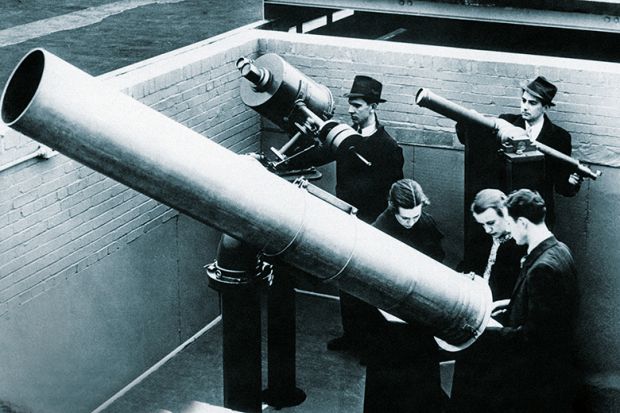A major international project that hopes to use “research on research” to help mend “broken” aspects of the global scholarship system has been launched.
The Research on Research Institute (Rori), founded by a group including the Wellcome Trust, two universities and the technology firm Digital Science, hopes to tap into the “huge scope” for how analysis of research systems can impact science policy around the world.
A dozen other partners – including national research funders in the UK, Netherlands, Switzerland and Canada, and non-governmental funding bodies in the US and Germany – have expressed an interest in participating in the project, which will be based “for an initial two-year incubation phase” at Wellcome’s offices in London.
James Wilsdon, director of the new institute and professor of research policy at the University of Sheffield, one of the academic institutions involved alongside Leiden University, said he hoped that the consortium could, by conducting comparative analyses of research systems, unlock insights into best practice and efficiencies.
“Every country is grappling, by and large, with similar, if somewhat contextually different, challenges related to the funding and development of their research base, and I think there is huge scope to be better at capturing what is working well, what is working badly and transferring that knowledge around,” he said.
The project’s initial work will be organised under three main themes relating to research “decisions”, “careers” and “culture”, and will likely tackle a range of pressing topics affecting universities, individual scholars and the wider research system, including how research is funded, open access and the use of metrics.
Rori’s work will include a rolling programme of research seminars as well as regular reports, working papers and “high-quality rigorous peer-reviewed research”, with all findings and data made openly available.
Professor Wilsdon said there was no expectation of financial backing from the partners, whose numbers he hoped would expand in the coming months but which already include the Dutch Research Council, the Swiss National Science Foundation and UK Research and Innovation.
“What we want is access to their data or their commitment to share data or to undertake joint experiments and trials…and in that way to try to really scale up and generate more useful and applicable findings from this kind of work that can be of real strategic and practical use to decision-makers,” he said.
Daniel Hook, chief executive of Digital Science and a co-chair of Rori, said that while there was already a large amount of “research on research” both inside and outside academia, “what we’ve noticed is there is actually very little translation” of findings “into practice”.
The exact issues and priorities to be tackled will be determined through discussion between the organisations involved.
However, Dr Hook said, major aspects of the operation of modern research were “fairly broken, to be honest”.
“I think there are a lot of challenges and a whole stream of things that are connected,” he added, with a common thread being a disconnect between the use of “the paper” as the main way of communicating research and the growing use of data around that.
By improving how “research on research” was carried out and communicated, Rori could “make a tangible, productive, long-lasting impact on the way in which research systems are organised, funded and evaluated”, Professor Wilsdon said.






